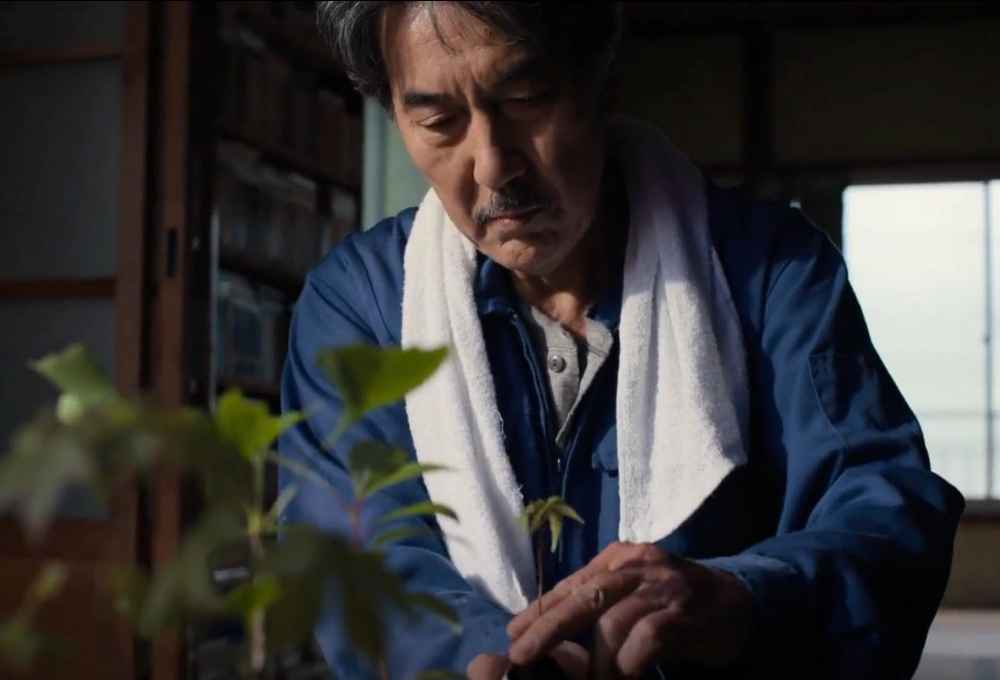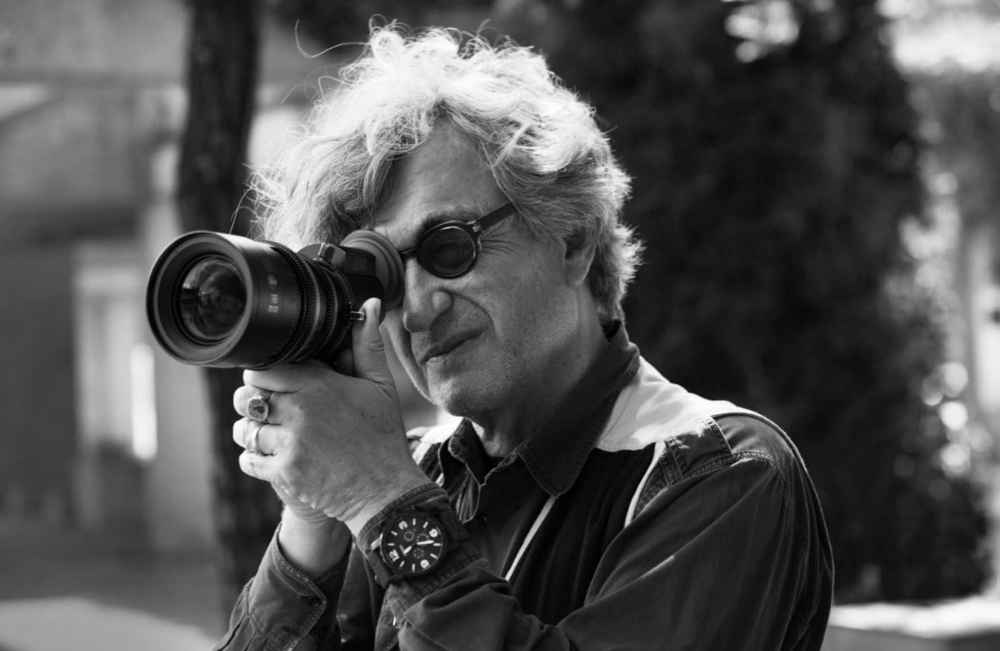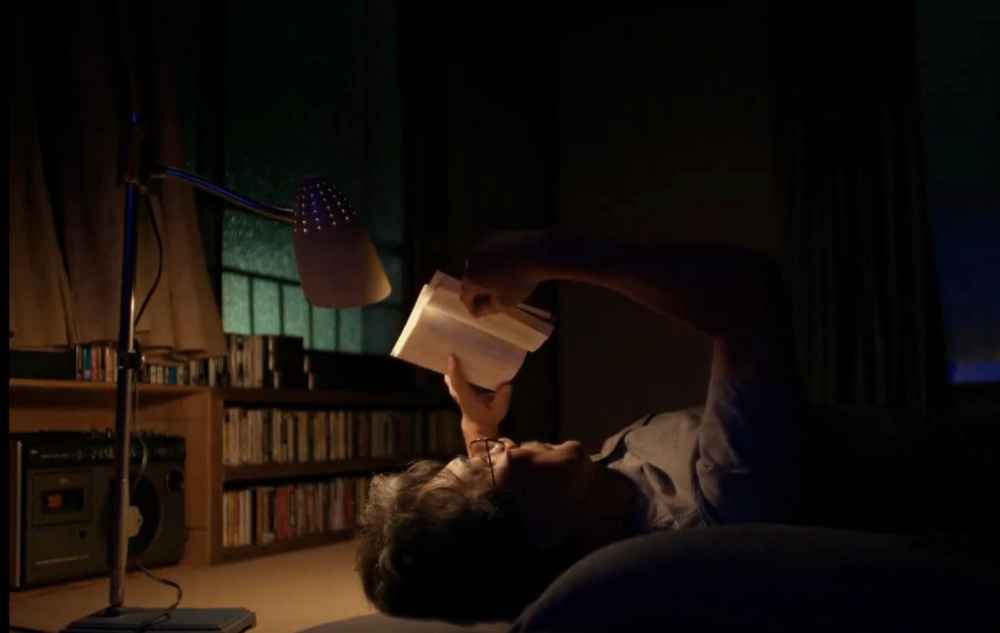"I’m off balance, not sure what’s wrong. —You have misplaced joy, he said without hesitation. Without joy, we are as dead. —How do I find it again? —Find those who have it and bathe in their perfection.”– M Train – Patti Smith
Perfect Days is a portrait of the ‘ordinary’. It illustrates that fleeting search for meaning scattered amid life’s habitual routine and it revels in the stillness of appreciation.
Perfect Days, named after the Lou Reed song, is a new film by director Wim Wenders (Paris, Texas (1984) and Wings of Desire (1987)). The film follows Hirayama, a public toilet cleaner in Tokyo as he takes care of his houseplants and explores his passion for music, books, and photography. The film was initially pitched to Wim Wenders after an invite from Koji Yanai to witness the Tokyo Toilet Project. This project commissioned sixteen architects from around the world, many known for building banks and museums, to visit Japan and for each of them to build a… toilet. Each toilet was renovated with the purpose of countering the common association of such facilities with dirt, darkness, and danger.
Wenders was initially approached with a proposal for a documentary series on these novel public toilets, but after his visit he felt compelled to create a feature length film sensing the need for a more crucial statement to a post-COVID world. Teaming up with co-writer Takuma Takasaki, Wim created the character of Hirayama to not only educate the public about these new, artistic lavatories but to also highlight society’s neglect of unseen essential workers. The binmen, the carers, construction worker, farmers, cleaners. He wanted to elucidate architecture’s ability to uplift public well-being and encourage appreciation for those who maintain these spaces. Hirayama symbolised both the overlooked worker and the remedy. He observes life and appreciates those around him. He finds beauty wherever he can, even if that beauty is a toilet.

I watched this film after I had been out for a bit of a boozy, morning brunch celebrating my friend’s twentieth birthday. After the screening, I came home to my laptop and found my mind swirling with Wim Wenders. Lou Reed. Van Morrison. Mick Jagger. Nina Simone. Otis Redding. Patti Smith. Patti Smith. Patti Smith. Perfect Days reminded me of M Train (2015), the second Patti Smith Memoir I had read with its meandering prose and searching contemplation. Both M Train and Perfect Days share a wandering exploration of the warm monotony and bittersweet tediousness that often characterises human life.
Routine and monotony are a shared reality for humans. Every day we wake up, we get changed, we eat, we shower, we clean. And the next day, we repeat it all over again. We all dread repetition, but we all do it. Few films ever show it and so many films divert from it because why show repetition when a handy, snappy montage does the trick. Yet all of this filmic diversion from everyday life omits the fact that there is a joy and a purpose in routine. Hirayama finds that joy and exemplifies it. Yet there is more to this film than Hirayama’s enjoyment of his curated routine.

The film’s original title was Komorebi. Translating to “sunlight leaking through the trees”. Komorebi is the oscillating rays that shimmer through the overhead foliage, projecting dancing shadows upon the undergrowth. It is that deeper connection with nature, it prompts you to pause and soak in the beauty of that which is often disregarded. Hirayama is the embodiment of Komorebi. He is the pause that savours the beauty unseen by others. Where passersby disregard the homeless man that camps out in the park, Hirayama observes the man as he moves through his dance of catharsis.
Where others overlook the Tokyo Skytree on their daily commute, Hirayama cranes his neck to admire it. Where others navel-gaze and miss the beauty of the trees overhead, Hirayama captures it with his old, film camera, cherishing each moment beneath the trees. These moments underneath the canopy, as the dark shadows dance and the light flitters, define Perfect Days. Hirayama’s life, just like everyone’s, is characterised by light and dark. Despite searching for the light, life is full of shadows. Hirayama Laments, “Shadows, do they get darker when they overlap? … there are still so many things I don’t know. That’s life, I guess.”
Have you seen Wim Wenders' latest film?









